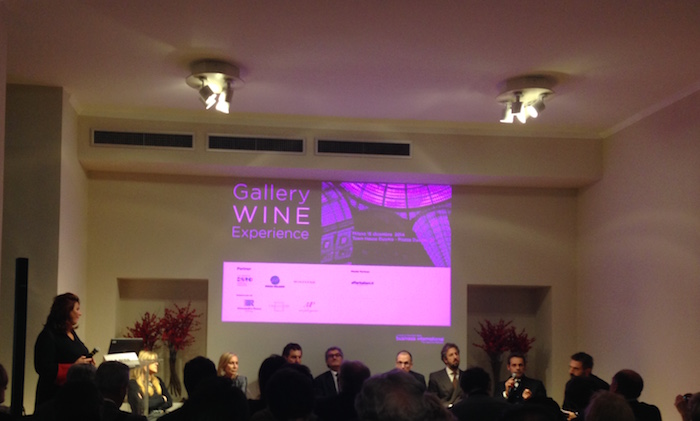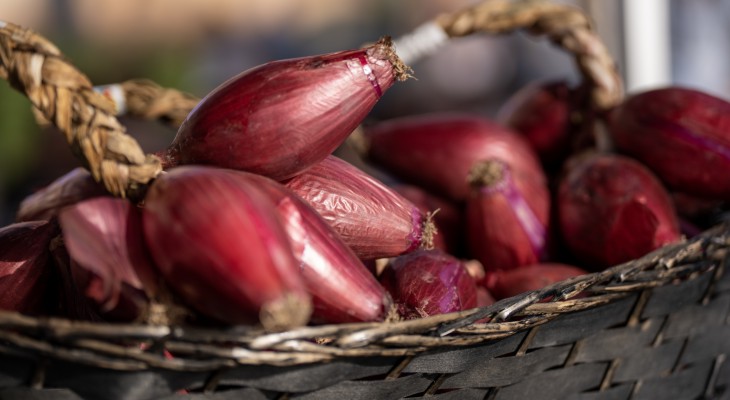
Expo, a great showcase for the world of Italian wine and a great opportunity to promote Italian wine to a potential audience of 20 million visitors. But how do we take advantage of Expo? That is what companies are asking themselves and asking because, despite the current projects, little is known and little is foreseeable.

This was discussed during the inauguration of Wine Temple, the wine cellar with 7,600 bottles of the best Italian wines, part of the Seven Stars hotel and first step in what is soon to be the Gallery Wine Experience, a multifunctional space with 14 designer rooms overlooking Piazza Duomo, with meeting rooms and two restaurants.
The meeting, organized by Business International-Fiera Milano Media with Marco Polo Experience and Alessandro Rosso Group tried to provide some first answers to the initial question.
Eugenio Pomarici, Professor of Economics and Chairman of the Economics and Law Committee of the

International Organisation of Vine and Wine, illustrated how Italy sees its share of world trade in wine grow, but sees it decrease in volume, replicating what is called the French model. But the problem of Italy lies in the fact that it is the leading supplier in traditional wine markets, but has a small share in those with the highest growth rate (the so-called new consumers).
In a scenario of growth in wine demand in the global economy respecting the standards of quality, safety, transparency, environmental sustainability and authenticity, the Italian wine system can reap significant benefits. And Expo represents a unique opportunity to be accredited with respect to the aforementioned elements necessary to be part of consumer choices and build that platform of widespread knowledge of Italian wines to make business strategies more effective. “But – warns Pomarici – companies must not rely only on the brand, they must also exploit the vines and regions from which their wines originate”.

A further contribution has come from Stefano Cordero di Montezemolo, economist and scientific coordinator of the Wine Business Executive Program, whose second edition will start in January and is addressed to winery managers.
Cordero di Montezemolo has put the accent on three issues.
1) Markets in which demand exceeds production and therefore in which there are greater development opportunities must be targeted. One of the mistakes made by companies is to “splay out” expanding the product portfolio and targeting multiple markets.
2) Do not underestimate the domestic market, which still accounts for 50% of sales and in the coming years will be strategic because there will be a profound shake-out, opening opportunities for companies that have boosted sales in the domestic market.
3) The third issue concerns the corporate organisation and the way in which companies must structure themselves. The Italian wine sector is very fragmented and this generates vitality, but economically it is an element of weakness. It is necessary to create – pointed out Cordero di Montezemolo – a critical mass to be competitive on the market and have systems able to manage a phase of strong competition. “In this respect, currently 40/50% of production passes through co-operative systems in contrast with private companies. I believe that this contrast can and must be overcome. We must realise that the production in volume is not negative: without volume we cannot imagine that a production system can survive and support investments in international markets. So Expo is fine, but local promotion is also necessary”.
A roundtable discussion concluded the meeting with the presence of a number of wine entrepreneurs who reaffirmed the need to join forces to develop a system (Marillisa Allegrini from the wine cellar of the same name) and for also small businesses thinking to the future to grasp the great opportunity of Expo (Anselmo Guerrieri Gonzaga from the San Leonardo Estate). And above all to find the justification and opportunities to bring the masses of visitors who in the six months will come into contact with Italian agro-food excellence to the production regions to visit the cellars. And wine is one of the most accredited.




